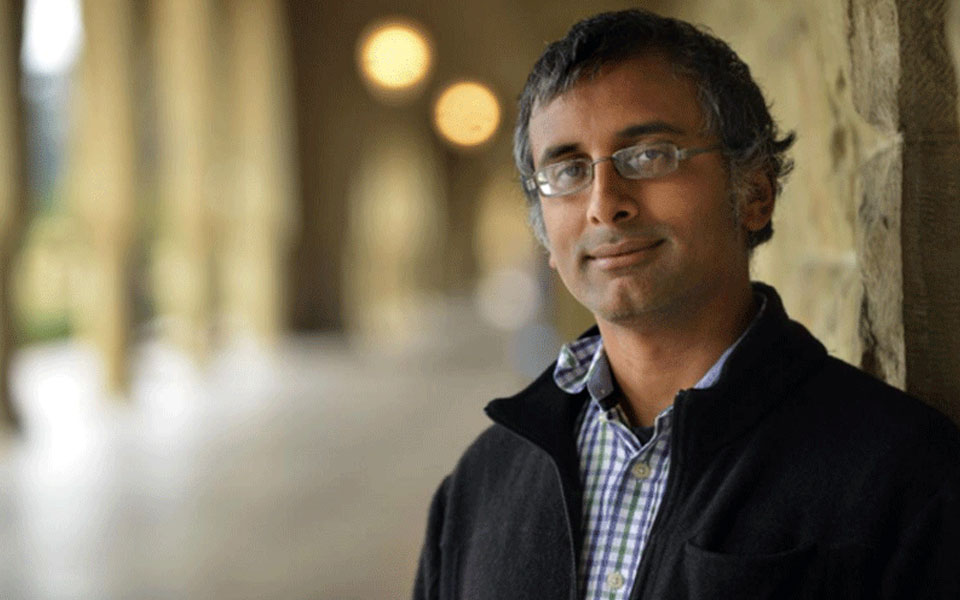New York, Aug. Aug 2 : Indian-origin academic Akshay Venkatesh has been awarded the Fields Medal, which is often called the Nobel Prize of mathematics.
The award to the 36-year-old academic was announced on Wednesday at the International Congress of Mathematicians in Rio de Janeiro.
Venkatesh, who made a mark as a child prodigy, is a professor at Stanford University and is set to move to the School of Mathematics of the Institute for Advanced Study at Princeton on August 15.
He is the second Indian-origin mathematician to win the prize after Manjul Bhargava, a Princeton University professor, who received it in 2014.
The other three winners of the medal awarded every four years usuallyto four mathematicians are Caucher Birkar, 40, of the University of Cambridge; Alessio Figalli, 34, of the Swiss Federal Institute of Technology, and Peter Scholze, of the University of Bonn.
The prize carries a gold medal and an award of Canadian $15,000.
Ali Nesin of Turkey was awarded on Wednesday at the Congress another prestigious award, the Leelavati Prize sponsored by Infosys for increasing public awareness of mathematics.
Nesin is the founder of the Mathematics Village, a unique institution offering short immersion courses in mathematics for high school and college students.
The prize is named for the treatise of 12th century mathematician Bhaskara II and carries a Rs 1 million-award. Venkatesh was awarded the prize for his work in analytic number theory, homogeneous dynamics, topology, and representation theory.
The Institute for Advanced Study said he works "at the intersection of analytic number theory, algebraic number theory, and representation theory."
He won India's SASTRA Ramanujan Prize, founded by Shanmugha Arts, Science, Technology and Research Academy (SASTRA) in Tamil Nadu in 2008 and the InfoSys Prize given by the Infosys Science Foundation in 2016.
Venkatesh moved to Australia from New Delhi with his parents when he was two years old.
When he was 12, he won medals at the International Physics Olympiad and International Mathematics Olympiad and joined the University of Western Australia at 14 and graduated with a first class honours degree at 15.
At 16, he started his post-graduate studies at Princeton University and completed his PhD when he was 22 He was previously an instructor at Massachusetts Institute of the Technology, and an associate professor at New York University.
Let the Truth be known. If you read VB and like VB, please be a VB Supporter and Help us deliver the Truth to one and all.
Dubai: Smoke was seen rising from an area near the United States Consulate in Dubai, according to witness accounts cited by Reuters.
There was no immediate official confirmation on the extent of damage or whether there were any casualties in the incident.
Earlier, the US embassy in Riyadh, Saudi Arabia’s capital, was also attacked. Authorities reported damage to the premises, but no casualties were recorded.
The developments come amid heightened tensions in the region, with Iran continuing to target US interests in the Middle East following deadly attacks launched on Saturday by Israel and the United States.
Near US embassy in Dubai pic.twitter.com/z5VTZNVxNO
— Sahil Shah (@thesahilsshah) March 3, 2026





